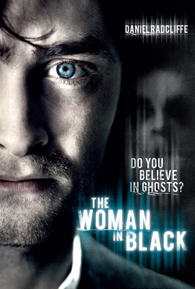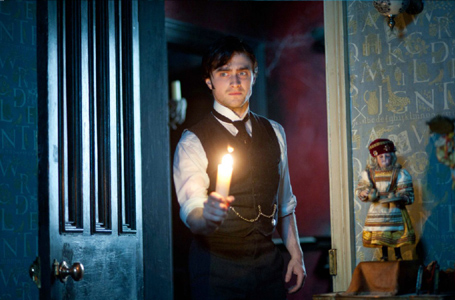
British horror is making a fierce return of late with such films as Wake Wood, this, and the forthcoming The Awakening, which sufficiently exploit the gloom of those rainy, windswept isles off the coast of Europe. The themes in such films have much in common: the tensions between being the world's first modern superpower but also home to a rich repository of myths, legends and superstitions: often highlighting the prevalence of superstition and in a deeper sense, the powerless of modernity to overcome ancient grudges and fears and prejudices.
This is a film that should have seemed like it held a lot of promise on paper. Susan Hill is one of most literate writers of thriller and chiller fiction the UK has ever produced. Genre screenwriter Jane Goldman, who in real life resembles the late-night horror host Elvira with her buxom figure and salty sense of humour, should have seemed ideal to adapt one of Hill's most known works to the screen. Yet the final product is disappointing. Daniel Radcliffe is miscast. Despite having been a major star since his early days as boy wizard Harry Potter, he has yet to prove himself a convincing adult actor as he leaves puberty behind. Ciaran Hinds and Janet McTeer fare better in giving their characters weight and texture.
The film's scares mostly consist of jump moments, shot in surprisingly familiar and repetitive ways that after a while one can pick up on almost all the visual cues that are placed before any major scare arrives, and are a waste of the film's striking cinematography and impressive set decorations. Still, since nearly the entire film rests on the shoulders of Radcliffe, he does significant damage to its overall quality and overall aids in failing to bring to life the script's intriguing and even poignant conceits about overcoming fear and reaching self-sacrifice.
In the end, as a predictable little chiller with a miscast Radcliffe, The Woman in Black is just a long extended Boo.

